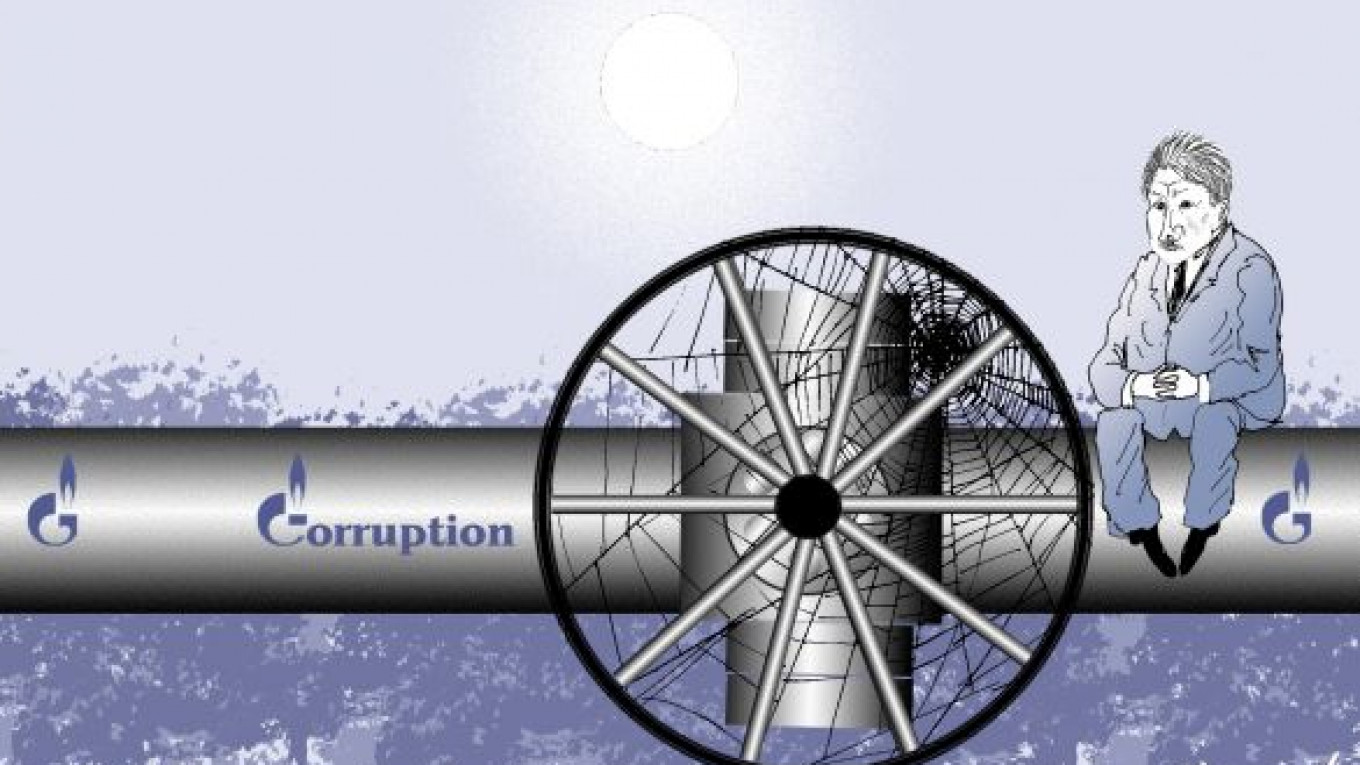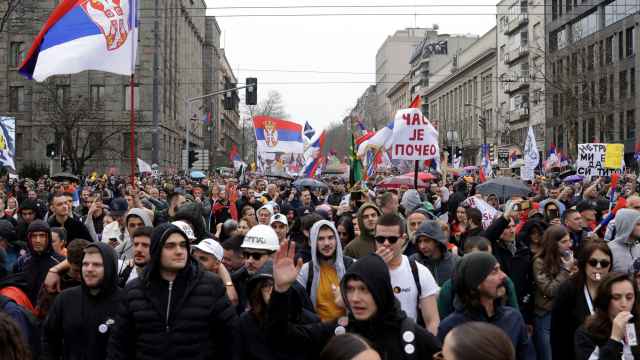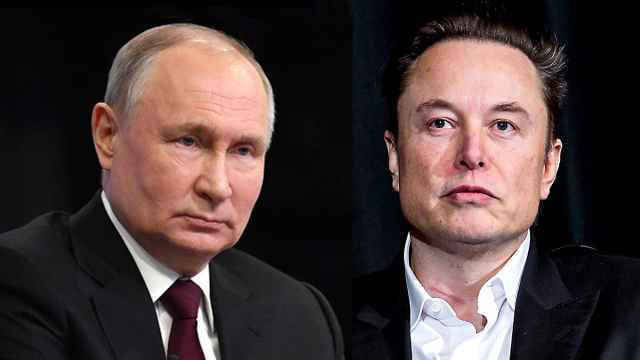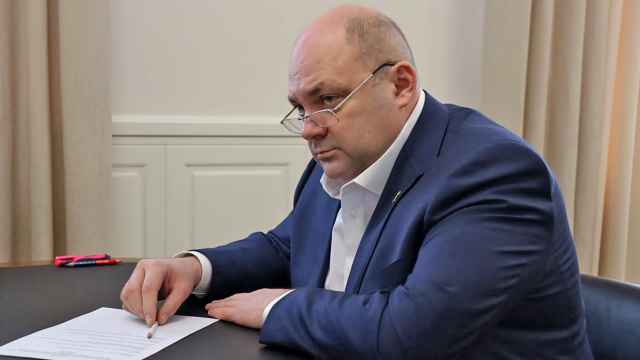Gazprom never fails to surprise with its shortcomings. For the last two decades, Gazprom's gas production has been stagnant, but this year its output is collapsing. In May, it plummeted by 15 percent in annual terms, while the leading independent company, Novatek, increased its gas output by 19 percent.
Even though Gazprom enjoys all the official state privileges, it still cannot produce. Natural gas is going through a global renaissance, but Gazprom has no part in that story. It ignores liquefied natural gas and shale gas, preferring its old paradigm of pumping gas from onshore giant fields through pipelines to a stagnant European gas market.
Nor can it sell. During the first four months this year, Gazprom's exports to Europe plunged 12 percent. Its sales to Ukraine collapsed by 40 percent in the first half of 2012. Gazprom continues to insist on its old long-term contracts with gas prices linked to the oil price, whereas the spot-market gas price long ago delinked from the oil price. In Europe, Gazprom is gradually being disciplined by market forces, but it charges Ukraine and Moldova 40 to 50 percent higher prices than its European customers.
Nor can it cooperate. For years, Gazprom has been preparing to tap the Barents Sea's giant Shtokman field, which was discovered in 1988. In 2007, Gazprom selected Norway's Statoil and France's Total for cooperation in this field, while keeping 51 percent for itself. After years of negotiations, however, Gazprom has not come up with an investment agreement for the first stage of this project. Last month, Statoil withdrew from the Shtokman project, forfeiting the $336 million it had already invested and its 24 percent of the project. In effect, Shtokman has been abandoned for years to come, and Gazprom's poor reputation has gotten even worse.
In early 2009, Gazprom suffered from an oversupply of contracted gas from Central Asia since European demand had collapsed during the global financial crisis. With its characteristic crudeness, Gazprom closed its pipeline from Central Asia abruptly without warning in April 2009, and the pipeline exploded on Turkmenistan's territory. Turkmenistan hastily built a pipeline to China —through Uzbekistan and Kazakhstan. And as a result, China has become Turkmenistan's main foreign customer, followed by Iran. The Turkmen do whatever it takes to avoid Gazprom.
The German energy company E.On used to be Gazprom's most loyal international supporter, but in December 2010 even E.On gave up on Gazprom and sold its stake of 3.5 percent. That was a wise decision. Gazprom's low stock price has fallen by another quarter since E.On sold.
Officially, Gazprom was the most profitable company in the world in 2011, claiming a net profit of $46 billion, substantially more than the second most profitable company in the world, ExxonMobil, which made a net profit of only $41.1 billion. Yet the market value of
ExxonMobil is $408 billion, while Gazprom is worth one quarter as much, at $112 billion.
The explanation is that ExxonMobil, unlike Gazprom, has decent corporate governance. Shareholders value giant ExxonMobil at a price-earnings ratio of 9.3, while they sensibly value Gazprom at a ratio of only 2.9. Independent Russian gas producer Novatek, by contrast, has a P/E of 14.5, and its production is expected to increase by 7 to 11 percent this year. Transneft, the notoriously leaking oil pipeline agency, has a P/E even lower than Gazprom's, at 1.8.
Although 49 percent of Gazprom is officially held by private shareholders and 51 percent by the Russian government, Gazprom managers and top Kremlin officials decide everything. People and institutions that own shares in Gazprom have no sense of ownership. Instead, they focus exclusively on the dividend yield, which is quite high, 5.9 percent, because shareholders know that is all they will get.
The real objective of Gazprom's management could be to siphon off the company's money, as opposition leaders Boris Nemtsov and Vladimir Milov have analyzed so well in their study "Putin and Gazprom." The main means of extracting funds from the company is capital expenditures, which Gazprom management boost whenever it can. Originally, Gazprom planned for capital expenditures of $27 billion last year, but as oil prices and thus gas prices rose, management threw an additional $25 billion into capital expenditures, for a total of $52 billion. Read any broker report and you'll see that analysts consider 70 percent of the capital expenditures "value detraction," their euphemism for corruption.
Gazprom seems interested in little but building export pipelines to Europe, although its exports to European countries have been declining for the past few years. Ukraine has an eminent transit capacity of no less than 120 billion cubic meters a year, which could easily be expanded to 160 bcm for $3.5 billion. But Gazprom appears to be determined to divert all gas to Europe to newly built gas pipelines. The two first Nord Stream pipes have already been built. They have a capacity of 55 billion cubic meters and a cost of at least $15 billion. Now Gazprom wants to double the Nord Stream capacity for a similar amount, clearly to avoid any transit through Ukraine.
Even so, Gazprom also plans to initiate an even more wasteful pipeline project, South Stream, with a capacity of 63 billion cubic meters, at a cost of at least $30 billion. Gazprom CEO Alexei Miller said the construction of South Stream will start in December.
Meticulously, Gazprom is preparing itself for the dustbin of history. It performs a valuable role as a litmus test of the government's real policy aims. As long as the current Gazprom management stays in place, it is clear that the government has no interest in limiting corruption.
Anders Aslund is a senior fellow at the Peterson Institute for International Economics.
A Message from The Moscow Times:
Dear readers,
We are facing unprecedented challenges. Russia's Prosecutor General's Office has designated The Moscow Times as an "undesirable" organization, criminalizing our work and putting our staff at risk of prosecution. This follows our earlier unjust labeling as a "foreign agent."
These actions are direct attempts to silence independent journalism in Russia. The authorities claim our work "discredits the decisions of the Russian leadership." We see things differently: we strive to provide accurate, unbiased reporting on Russia.
We, the journalists of The Moscow Times, refuse to be silenced. But to continue our work, we need your help.
Your support, no matter how small, makes a world of difference. If you can, please support us monthly starting from just $2. It's quick to set up, and every contribution makes a significant impact.
By supporting The Moscow Times, you're defending open, independent journalism in the face of repression. Thank you for standing with us.
Remind me later.







